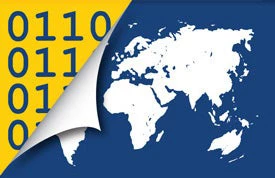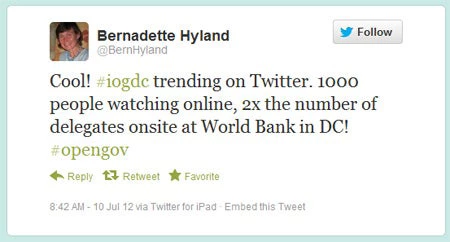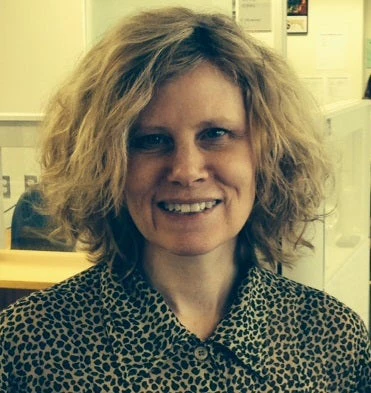
New World Bank Group President Jim Yong Kim greeted hundreds of open data experts and enthusiasts onsite and online, saying open data has “gone truly international” since the World Bank first made its data freely available to the public in 2010.
Since then, the Bank has released 8,000 data indicators for 200 countries covering 50 years as part of a broad effort to increase access to information and encourage problem-solving. The Bank is now working with developing country governments that also want to open their data and increase transparency in public finances to drive confidence and shape decision-making among investors, businesses and households.
“This is an increasingly important area today,” said Dr. Kim. The Bank recently supported the governments of Kenya and Moldova in their open data initiatives. “We can and will go further in supporting transparency in government and public service delivery.”
Policymakers and technical experts from five continents and 50 countries are participating in the three-day conference sponsored by the World Bank Open Data Initiative, Data.gov, and the Open Development Technology Alliance. More than 1,000 tuned into the webcast at World Bank Live, and many tweeted using hashtag #IOGDC on opening day.
U.S. Chief Information Officer Steven VanRoekel told the audience that open data’s return on investment goes beyond mere transparency – it allows citizens to see what government is doing, fosters public discourse and journalism, and potentially promotes economic expansion. In the United States, for instance, opening up weather data has created almost $100 billion in economic activity, he said.
“As governments embrace and democratize their data, there’s a lot of potential to make the world a better place for everyone,” said VanRoekel.
World Bank Managing Director Caroline Anstey said opening data has helped the Bank interact with people in new ways. Crowdsourcing innovations through hackathons and competitions, for example, is an increasing part of the Bank’s work. The Bank spearheaded the Open Aid Partnership by geo-mapping 30,000 Bank project activities in 143 countries, adding citizen feedback tools, and is now working with donors to map all their projects on a common platform. The Bank is also helping countries that have signed up to the Open Government Partnership achieve greater standards of transparency through mapping of public spending and is also helping governments implement Access to Information legislation.
But “you can only do open data if you have the data to open up,” Anstey added. Africa may not know the full impact of the financial crisis on its poorest citizens; only one in four African countries report basic crop production data. In South Asia, only 1% of the population is covered by complete vital registration records, and in Sub-Saharan Africa, only 2%, she said.
“Statisticians, and all of you in this room, are no longer in the dry and dusty numbers game,” said Anstey. “You are at the front line of a powerful and transformational movement. But it's a transformational movement that can benefit us all."



Join the Conversation